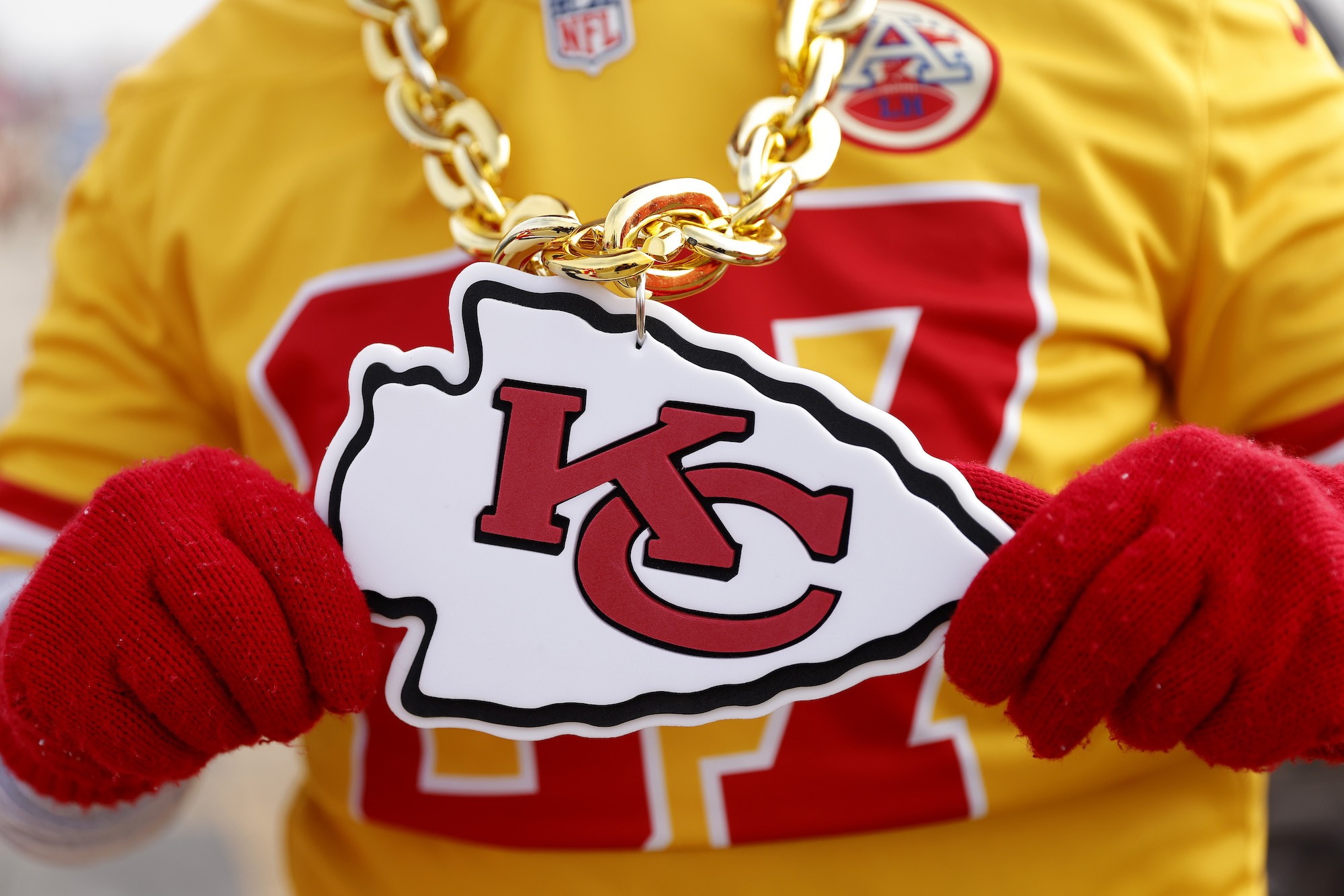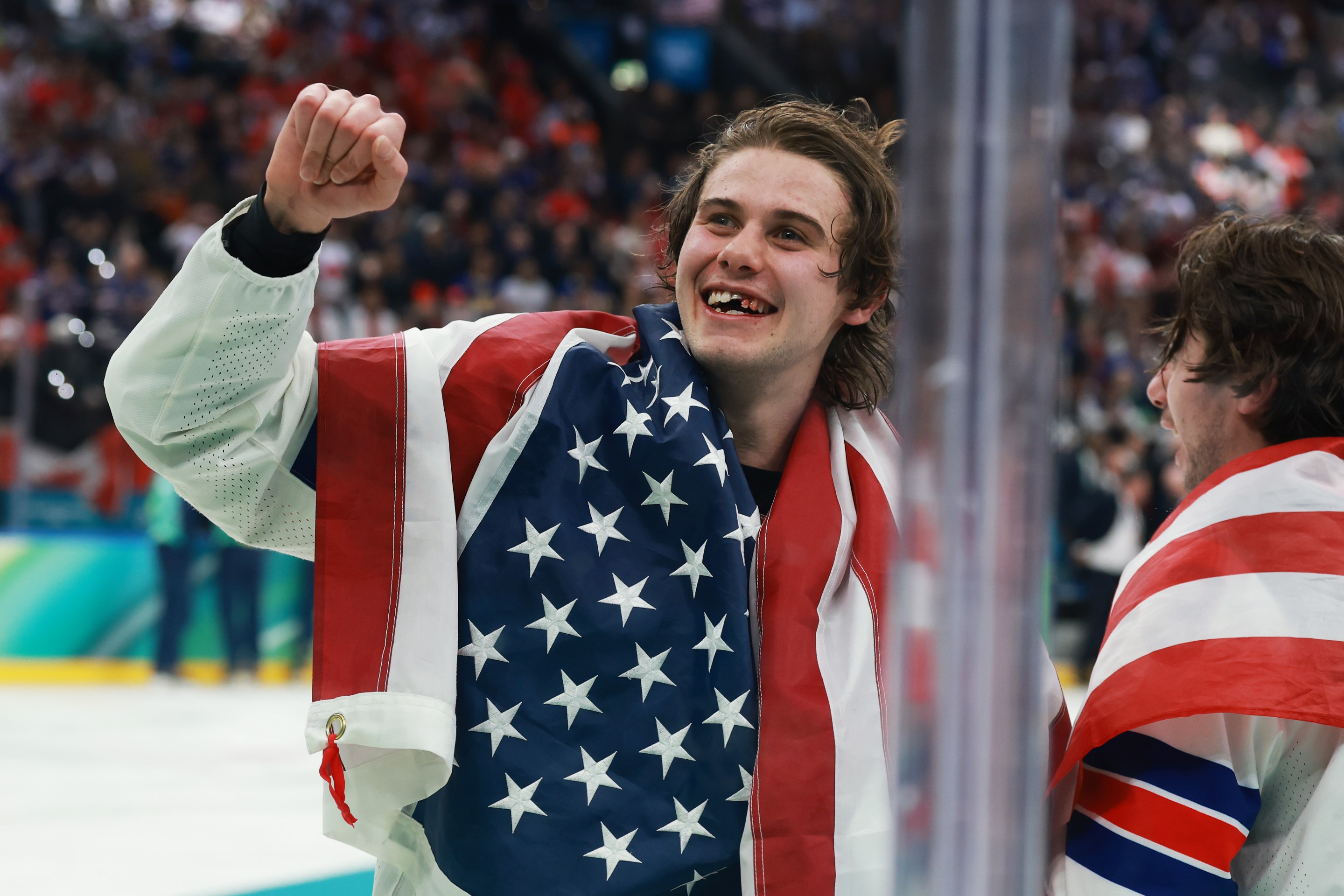This time of year is when Gaylene Crouser gets a lot of phone calls from reporters like me. We all ask her about the same topic: the Kansas City football team. It is, in the grand scheme of her job as executive director of the Kansas City Indian Center, just one of many responsibilities she has. The Center, which has existed for more than 50 years, provides a wide array of services, like a food pantry and mental health counseling and family programming and a youth camp. They do voter engagement and advocacy work. Reporters don't call nearly as often about any of that.
"Unfortunately those are not the kinds of things that really get us any press. When we're talking about missing and murdered Indigenous women, when we're talking about boarding schools ... those kinds of things, that's not what gets us press," Crouser said. "What gets us press is when we say: We do not support this mascot, this continued systemic racism that is so pervasive in Kansas City."
So Crouser takes phone calls like mine. And she talks about it because the name is ridiculous, the chop is ridiculous, the song is ridiculous. She called them "disturbing and disgusting." Of course she wants them gone. Because one goal of the center is to help make its community safer and healthier, Crouser sees calling this out, year after year, as part of that mission.
"These mascots, whether it's in an elementary school, or a national football or baseball team, do not empower Indigenous people," Crouser said. "It's actually, the science shows, harmful—not just to Natives, but all people, all minority people. It increases that implicit and explicit bias and leads to more racism."
Kansas City will be playing in the Super Bowl on Sunday. That same day, there will be protests from the Not In Our Honor Coalition, which also has an ongoing petition. The group has been protesting these mascots for years now, and they call out Kansas City for the same reasons they've called out so many mascots that have since been abandoned. This year, the Super Bowl is being held in Arizona, which the coalition notes is home to 22 tribal nations.
It may get more ink this year because they're in the Super Bowl, but not a year goes by without Native Americans saying loudly and forcefully that they want this name changed. And the name should be changed. The argument for dropping the name—as well as dropping the chop, the logo, and ditching the name Arrowhead for the stadium—is as clear and concise as it is often stubbornly ignored: It promotes racist imagery of Native Americans people that only causes harm to them. On this, Native American people and activists have been very consistent over the decades.
In recent years, Washington's NFL team and Cleveland's MLB team have finally dropped their racist mascots. But Kansas City in the NFL and Atlanta in MLB and Chicago in the NHL have avoided similarly broad calls for change. At least, for now.
The name "Chiefs" wasn't given to the team out of any sort of reverence for Native Americans. It came from Kansas City's mayor, Harold Roe Bartle, who helped bring the team to the city and whose nickname was "The Chief."
The nickname came from Bartle's prior work with the Boy Scouts of America, where he founded an honor society called the Tribe of Mic-O-Say. As Vincent Schilling wrote for Indian Country Today, Bartle also claimed that he was inducted into a local tribe of the Arapaho people and was given the name Lone Bear by an Arapaho chief. Regardless of whether any of that actually happened, the nickname stuck. When the AFL's Dallas Texans moved to Kansas City in 1963, the the team changed its name as well.
You can read Schilling's article as well as listen to a four-part series on the podcast Sometimes It Rains for more history about how the name happened, but what matters most is this: The name "chiefs" has never been about honoring or even acknowledging Native Americans—an argument in its defense that you're likely to hear today. It was just the nickname of some white guy.
It's this attitude—this sense of we can just call things whatever we want—that permeates everything else that follows. The stadium is called Arrowhead because team owner Lamar Hunt thought it would be "symbolic." The "tomahawk chop" began at Florida State in the 1980s and spread to Kansas City in 1990, when the Northwest Missouri State band happen to be in the stands—its band director was a Florida State graduate—and played the music for it.
“It’s a direct descendant of Florida State,” the team's promotions director Phil Thomas told the Associated Press at the time, in a quote republished years later by the Kansas City Star. “The band started doing the tomahawk chop and the players and Marty Schottenheimer loved it. He came back to us and said, ‘Why don’t we have these guys every game?’"
At no point in any of this was anyone asking American Indians how they felt about this. If they had, they would have noted that the National Congress of American Indians launched a campaign in 1968—that's more than half a century ago—to combat harmful stereotypes in sports and popular media. That campaign and the work of generations of activists has gotten teams that include Dartmouth, Miami University of Ohio, and the Washington Commanders to get rid of their mascots. And every time, the worst pronouncements of the fear-mongers—the fans would revolt, the stands would be empty, it just wouldn't be the same—never came true.
As Crouser said, there is research showing these mascots are damaging.
In 2005, the American Psychological Association called for the end to all American Indian Mascots because "these mascots are teaching stereotypical, misleading and too often, insulting images of American Indians." In 2020, researchers professors Laurel R. Davis-Delano at Springfield University, Joseph P. Gone at Harvard University, and Stephanie A. Fryberg at the University of Michigan reviewed decades of research and concluded that the mascots were psychologically detrimental to Native American students, taught and reinforced ugly stereotypes of Native Americans. Supporters of such mascots, the researchers found, "are more apt to believe prejudicial ideas."
In 2022, Davis-Delano, Gone, and Renee V. Galliher, of Utah State University, conducted a survey of 903 white Americans to try and measure their associations with Native American mascots and if it affected their attitudes toward Native American people. They found that people with a greater exposure to sports media and these mascots "were associated with more
prejudice toward and less support for American Indian rights, via double mediators—first via less opposition to American Indian mascots, and second via less opposition to other types of Native appropriation."
That study concluded by remarking: "The implications of our findings are clear: The institutions of sports—situated in the economic and education institutions—is associated with bias against AI Peoples via inclusion of AI mascots. Further, it seems likely that the normalization of AI mascots in sport renders other types of Native appropriation more acceptable."
Over the years, Kansas City has made gestures. In 1989, the team changed the on-the-field mascot from a man in a headdress riding a horse to a wolf. In 2020, they banned fans from wearing headdresses in the stadium. But Crouser said she still sees fans in headdresses, and they pop up on social media all the time. That's why these little changes don't really add up to much. They don't change the foundational problem, which is the name.
"You cannot have the name and imagery associated with a team and just dial back," she said. "All the racism that's inherent in that, it's just baked in there. You can't pull it out."
The racism that the name fosters and encourages becomes clearest when people speak out against it. When the Kansas City Indian Center posts about the name on Facebook, the responses aren't just telling them to stop. They'll invoke stereotypes of Native Americans, Crouser said, with comments like "why don't you solve alcoholism in your community before you start worrying about your team name." That stereotype has been debunked, but that doesn't stop people from wielding it as as a weapon.
"They just throw these other stereotypes around as these kind of barbed jabs at us because they don't like what we are saying," Crouser said, "and they don't want to change what they are doing, and nobody wants to be called a racist.
"And I'm not saying all those people that are out there doing that have racism in their heart. What they have in their heart is wanting to cheer for their team, but they're willing to be complicit in this problem."
Near the end of our conversation, Crouser talked some more about all the work the center does. It includes education, like working with local school districts on their curriculums. Because there is so much people don't know, often about what has happened in their own communities.
"They don't know about all the assimilation policies. They don't know about the boarding schools. They don't know about the Indian Religious Freedom Act of 1978. They won't know about all of that—all of the oppression and assimilation. They don't know that it was illegal to be an Indian in Missouri until they took that law off the books in 1909," she said. "And then, literally, less than 20 years later, here's this white guy appropriating our culture, the same year that we became citizens, for the Boy Scouts. And that's who your team is named after.
"And they celebrate that and him and all that appropriation is just this big celebration of appropriation. But they don't want actual Indians. They just want to cherry-pick the parts they like and play Indian with them instead of us as we are—as actual human beings."






